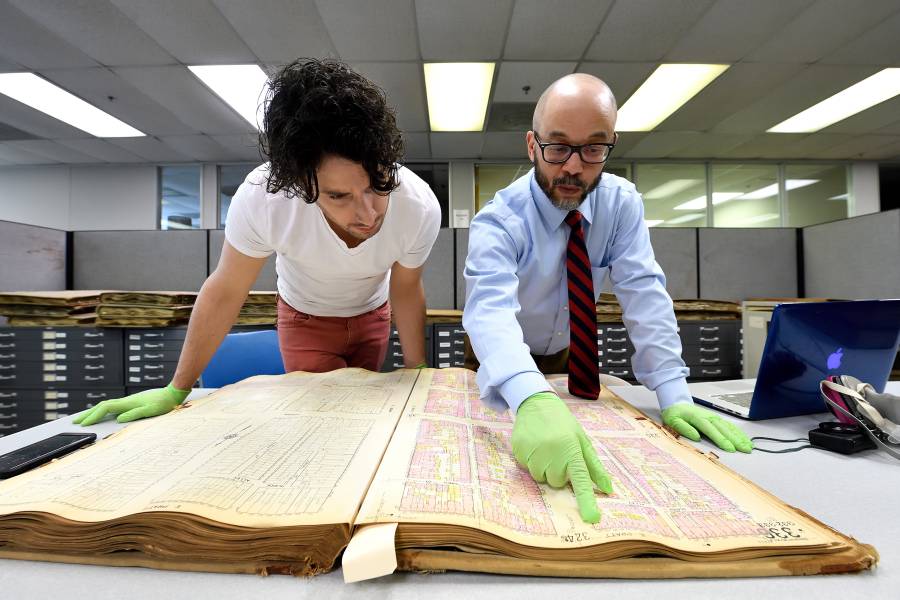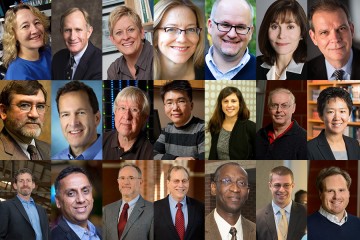Fateha Zannath has been immersed in issues of health care access and health disparities since childhood. The daughter of first-generation immigrants, she has helped her mother, who has complex medical conditions, navigate the medical system.
So the summer after her first year at Johns Hopkins University, Zannath was thrilled to work alongside Kathryn McDonald—an internationally recognized expert in health care quality and patient safety—on a research project examining how race, gender, ethnicity, and other visible factors impact medical misdiagnoses.
"It was an incredible experience," said Zannath, now a junior double-majoring in public health studies and economics. "Professor McDonald gave us the opportunity to work through this project as we saw fit and to determine how we conveyed our findings. She is so busy doing incredible work in different schools at Hopkins, but she is still so interested in our lives, what we're up to. She's always makes time for our questions."
Zannath is one of more than 130 undergraduate students who have been awarded fellowships over the past four years to conduct research under the guidance of the university's Bloomberg Distinguished Professors. The professors, preeminent scholars whose work merges at least two traditional academic disciplines, travel the world lecturing and consulting. Yet many of them also make time to teach, mentor, and provide research opportunities to Hopkins undergrads.
The application period for the 10-week BDP summer program opens Nov. 15; applications are due by Feb. 1.
"We believe that undergrads deserve to have access to great scholars," said Denis Wirtz, JHU's vice provost for research. "We strongly believe that teaching and research go hand-in-hand; that's part of Hopkins' DNA. And many great scholars also have an eagerness to teach and be accessible to undergraduates."
McDonald, who came to Hopkins in 2019 from Stanford, began to identify research opportunities for undergraduates even before she set up her office in Baltimore. She gave the students the latitude to decide how they would gather and present information.
"It's mutually beneficial to be around fresh minds," she said. "They haven't already formed all their ideas and bring new perspectives. I'm pretty interested in developing people. I choose undergraduates with a mix of different approaches to research. It's not just about doing tedious tasks, but how you can be part of a team."
The Bloomberg Distinguished Professors are encouraged to identify research opportunities that go beyond the duties historically relegated to undergraduate lab assistants, such as entering data, answering phones, and checking citations, Wirtz said. Rather, the professors call upon the students to stretch themselves intellectually and bring their unique experiences and areas of expertise to the project.
Axel Bax worked on a research project about singer Billie Holiday under the guidance of Bloomberg Distinguished Professor Lawrence Jackson. He combed over police records from Baltimore's Eastern District in the early 1920s—when Holiday lived there as a young teen—to understand the societal pressures she faced.
"I had never done archival research before and I got to learn firsthand from someone who had done tons of archival research," Bax said. A psychology and English double-major who graduated in May, Bax used data analysis and mapping techniques he had learned in his psychology classes to present the team's findings.
All summer research fellows are awarded a $6,000 stipend to cover living costs, so they can fully devote themselves to their research projects without needing a second job to pay the bills. "Many undergraduates cannot afford to not earn money over the summer," Wirtz said. The stipend ensures that summer research opportunities are accessible to all students, not just those who can lean on relatives to pay their living expenses.
It was Bloomberg Distinguished Professor Steven Salzberg, director of the Center for Computational Biology in the McKusick-Nathans Institute of Genetic Medicine, who first proposed the undergraduate research program in 2018, said Julie Messersmith, the university's executive director for research. Since then, 137 students have taken advantage of the program. Tracy Smith, the university's director of undergraduate research, informs students about the research opportunities with BDPs and urges them to apply for opportunities that will both appeal to their interests and challenge them academically.
For rising junior Micki Paugh, a summer spent working on a project with Bloomberg Distinguished Professor Jessica Fanzo helped her refine her interests. Paugh joined the lab in June 2020, just as Fanzo was launching the Food Systems Dashboard, a massive project that displays real-time data about how nearly every country in the world produces, stores, transports, and uses food. Paugh was one of six undergraduates working with Fanzo in the summer of 2020.
"It was amazing to be able to experience the final step of such a big research project," said Paugh, an international studies major. She wound up continuing to work on research with Fanzo throughout the academic year, assisting with journal articles and Fanzo's book on food systems. "It awakened my interest in food systems. All of my papers for classes last year in some way related to food systems and nutrition policy."
Paugh is enrolled in a dual degree program with Hopkins and The Paris Institute of Political Studies, known colloquially as Sciences Po. After completing her undergraduate degree at Hopkins, she will earn a masters at the French university. After that, she says, she would like to pursue a doctorate related to food systems—inspired by her research with Fanzo.
For Fanzo, the presence of undergraduates is inspiring, especially when they develop a deeper interest in her areas of expertise. "Hopkins students are whip smart," she said. "They are really motivated, high energy, and ask lots of questions. Being in the presence of young people who are really curious is very stimulating."
Fanzo said the graduate students and postdocs who work with her also benefit from working alongside undergraduates. "They learn about mentoring and how to keep students engaged and using their time effectively," she said.
Wirtz, the vice provost for research, said that these mixed-age lab groups become a home away from home for undergrads and grad students alike. He sees that happen in his own lab, in the Department of Chemical and Biomolecular Engineering, where 25 undergrad, grad, and postdoc students are currently at work. "The students think they're going to come in, work two hours and be on their way, but soon they are hanging out in the lab, doing their homework, and making true friendships," he said.
That is true for Zannath, the rising junior who worked with McDonald last summer. She and other undergraduate and graduate research assistants interviewed health care providers and patient advocates to compile a list of solutions that combat diagnostic disparities. She continued working on the project throughout the academic year and helped create workshops on the techniques for patient and provider advisory boards. This past summer she interned at Duke University's Margolis Center for Health Policy.
"Working with Professor McDonald has shifted my attitude in a dramatic way," Zannath said. "I used to think that health disparities were a structural problem, and nothing could be done to fix it. Now I know that there are ways to remove biases from health care providers, and I can be part of that work."
Posted in University News, Student Life









